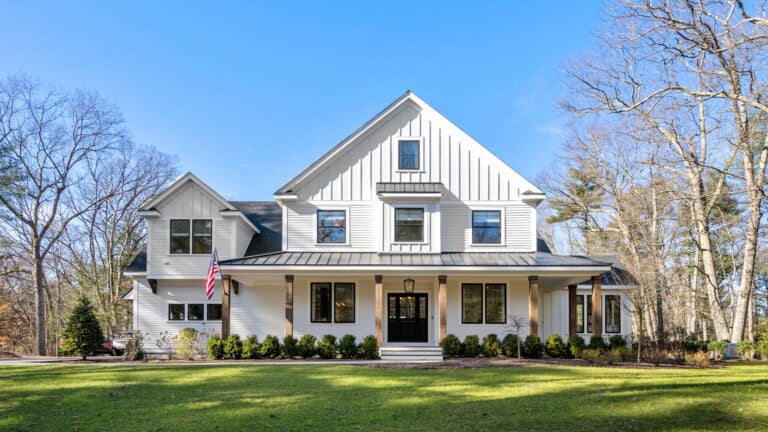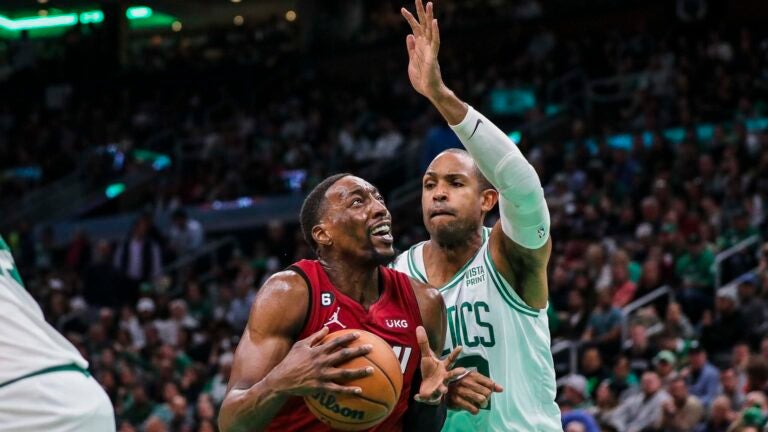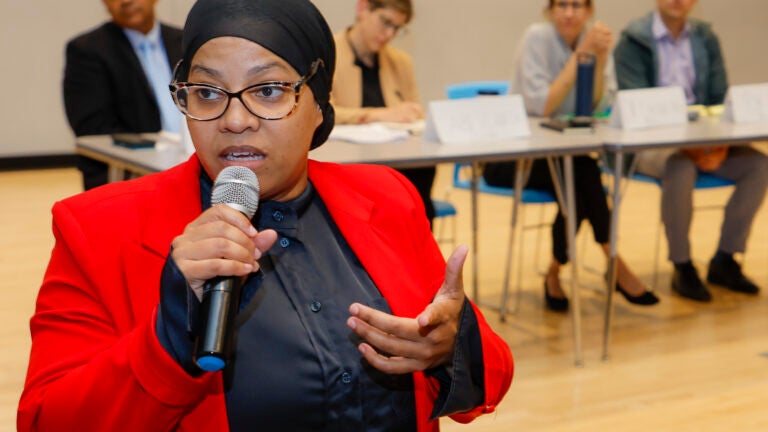Boston councilors consider whether marijuana, liquor stores should be banned near addiction treatment centers
"When we’re dealing with an emerging industry, zoning is very key to health, and that’s where we have the most influence."
As communities across the state grapple with the deadly grip of the opioid epidemic, Boston city leaders are weighing whether restrictions should be placed on marijuana dispensaries and liquor stores to prevent them from opening their doors near substance abuse treatment centers.
Imposing some form of a “buffer zone” measure, a rule that would put a specific distance on how far dispensaries and package stores would need to be from one of the city’s 90 licensed treatment facilities, could provide protection for people recovering from addiction — already a fragile and difficult process, proponents told city councilors Tuesday.
Yet additional red tape on the already heavily-regulated, burgeoning marijuana industry could hinder not only its growth in Boston, but also clash with the city’s ongoing efforts in making the business accessible and equitable to communities of color and those most negatively affected by drug laws, opponents say.
While councilors have not presented any specific framework, people recovering from addiction, experts, advocates, and city administrators all offered cautionary views and their initial input on how lawmakers could steer such a policy — and if they even should — at City Hall Tuesday.
“When we’re dealing with an emerging industry, zoning is very key to health, and that’s where we have the most influence — looking at how we zone, how we space, how we regulate any industry,” lead hearing sponsor and District 1 Councilor Lydia Edwards said.
City zoning already places “buffer zone” limitations on current medical marijuana and forthcoming recreational marijuana dispensaries. The facilities must be at least a half mile apart from one another and cannot be within 500 feet of a kindergarten, elementary, or secondary school.
Under the zoning law, officials estimate that the city should eventually have enough shops to hit the state threshold municipalities must reach before they can turn away applicants: equivalent to 20 percent of the number of liquor stores in a town or city.
For Boston, that level is about 56 dispensaries.
Officials must also be mindful that they’re not placing an “undue burden” on potential applicants with city ordinances, said Jerome Smith, the city’s chief of civic engagement and director of neighborhood services. Too many measures that curb the marijuana industry means Boston could face trouble with the state’s Cannabis Control Commission.
“I would just worry that as we add more items to the list, we are definitely shrinking the small amount of land that we have in the City of Boston, and I would be worried about getting the number of licenses we’re supposed to get out in the city, out,” he said.
Marty Martinez, the city’s chief of health and human services, emphasized the need for balance in considering how Boston could approach embracing the new industry while remaining supportive of residents recovering from substance abuse.
There’s little data on how already operating medical marijuana facilities have impacted patients at nearby treatment centers in recent years, according to Martinez.
But it’s clear, with or without a study, the situation does affect people in recovery, he said.
“We need folks to have the ability to access services in neighborhoods that pull them away from the triggers that might be in front of them,” Martinez said, highlighting the city’s efforts to build a recovery campus on Long Island. “There’s no question that when folks … are battling addiction, seeing folks use drugs in neighborhoods or down the street, or in a variety of different scenarios you are all aware of, can be a challenge for folks to stay in treatment, to stay in recovery.”
Two marijuana businesses are looking to open in East Boston, each one in close proximity to a Porter Street treatment center operated by the North Suffolk Mental Health Association.
Representatives of the clinic urged councilors Tuesday to follow through with more stringent zoning regulations, including limiting the number of stores, limiting store hours, and requiring businesses to educate the public about marijuana, among others.
Katie O’Leary, director of recovery support services at the mental health association and a recovering heroin addict, said factors that can trigger her substance abuse disorder remain a challenge for her still, even after nearly eight years of sobriety.
“Having a dispensary next to the outpatient clinic would have been detrimental to my recovery process,” she said. “At that time in my life I had little to no support other than the building at 14 Porter St. in East Boston and the people working in it. Any little thing was capable of setting me off.”
Marijuana advocates say the intent behind a potential “buffer zone” is laudable, but they worry the measure would only add to existing challenges surrounding how entrepreneurs can enter the industry in Boston.
Arish Halani, president of Omnicann, one of the two marijuana businesses seeking a license to open near the North Suffolk facility, said he doesn’t think his dispensary would impact the outpatient program.
Treatment centers have operated for years in close proximity to bars and liquor stores, he said.
“It’s not fair to place additional restrictions on entrepreneurs who already face significant restrictions,” Halani said. “A ‘buffer zone’ would dramatically increase the difficulty of locating suitable property in Boston for a legal cannabis store. This proposal would be a major setback for all applicants, including minorities and equity applicants.”
Package store owners are primarily concerned about how the measure would impact the value of a liquor license — primarily how a license holder could transfer a license if new regulations about where a store could open took hold, according to Charlie Ahern, an attorney and lobbyist representing the Massachusetts Package Stores Association.
Robert Mellion, the association’s executive director who was not present Tuesday, told The Boston Globe in October municipalities must provide evidence that a liquor store poses a threat to public safety “based upon a real record” in order to ban one.
Edwards and others voiced support for forming an advisory board to work with marijuana business applicants to address community concerns in different neighborhoods.
She said she intends to bring up the conversation again next year.
“When we think about policy, when we think about moving forward, we need to both think in the specific incidents (of addiction) but also in the larger city impact and how this may hurt a lot of people who just want to start a business … but at the same time, [we] don’t want it to be starting a business on the backs of people who are already struggling,” Edwards said.







